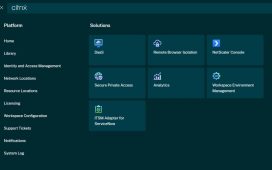In Lists and people on Mastodon I showed how I added a list column to the following tab of the Mastodon browser I’m building. That was a step in the direction of easier and more powerful list management. It enables me to see whether the people I follow are assigned to lists, and to consider who should be on a list (or perhaps on a different list).
Today, as I began to use that new affordance in earnest, I discovered a new challenge. In order to assign someone to a list, or change a list assignment, I clicked the link in the account_url column to open that person’s profile in the Mastodon web app. That was fine for accounts on my home server, mastodon.social. An account URL like Shelley Powers’ https://mastodon.social/@burningbird brings me to Shelley’s profile on my home server where the list manager is available.
But if I’m following someone elsewhere, like Ward Cunningham at https://mastodon.radio/@k9ox, the account URL brings me to Ward’s profile on that server where the list manager isn’t available. In order to assign Ward to a list I had to capture his account URL, paste it into the search box in my home server’s web app, and then click the resulting link: https://mastodon.social/@k9ox@mastodon.radio.
That got old real fast, so I adjusted the following tab to display the latter flavor of URL which I’ll call an instance-qualified URL.
Steampipe provides a few ways to make that adjustment. As a user of the dashboard, you can use Postgres’ regular expression functions to do the transformation in the SQL query that drives the view. But you’d rather not have to. It’s much nicer if the plugin does that for you, so the SQL can just refer to a column called instance_qualified_url.
I chose the latter approach. As the author of a Steampipe plugin you want to make life as easy as possible for users of the plugin. When you’re the author of both the plugin and the dashboard, as I am in this case, you can enjoy a nice virtuous cycle. As the dashboard evolves you discover ways to improve the plugin, which leads to more use of the dashboard, which suggests further opportunities to improve the plugin. I have been greatly enjoying the coevolution of these two components!
Adding a new column to a Steampipe table
To make the change, I extended the structure that defines the columns of the tables mapped from Mastodon’s Account API. A Steampipe plugin defines columns using a list of structs like this.
...,
{
Name: "url",
Type: proto.ColumnType_STRING,
Description: "URL for the account.",
},
...,
That struct says: “When the name of a top-level field in the API response is URL, tell Steampipe to make a database column with that name and with the Postgres type text.”
You can also transform values in API responses to synthesize new columns that don’t appear in API responses. Here’s the struct I added for this case.
...,
{
Name: "instance_qualified_account_url",
Type: proto.ColumnType_STRING,
Description: "Account URL prefixed with my instance.",
Transform: transform.FromValue().Transform(instanceQualifiedAccountUrl),
},
...
That one says: “Send the API response to the transform function instanceQualifiedAccountUrl, and use its result as the value of the column.
Here’s the function.
func instanceQualifiedAccountUrl(ctx context.Context, input *transform.TransformData) (interface{}, error) {
url := input.Value.(*mastodon.Status).Account.URL
qualifiedUrl := qualifiedUrl(ctx, url)
return qualifiedUrl, nil
}
It delegates the real work to another function.
func qualifiedUrl(ctx context.Context, url string) string {
plugin.Logger(ctx).Debug("instanceQualifiedUrl", "server", homeServer, "url", url)
re := regexp.MustCompile(`https://([^/]+)/@(.+)`)
matches := re.FindStringSubmatch(url)
if len(matches) == 0 {
return url
}
person := matches[1]
server := matches[2]
qualifiedUrl := fmt.Sprintf("%s/@%s@%s", homeServer, server, person)
plugin.Logger(ctx).Debug("instanceQualifiedUrl", "qualifiedUrl", qualifiedUrl)
schemelessHomeServer := strings.ReplaceAll(homeServer, "https://", "")
qualifiedUrl = strings.ReplaceAll(qualifiedUrl, "@"+schemelessHomeServer, "")
plugin.Logger(ctx).Debug("qualifiedUrl", "qualifiedUrl", qualifiedUrl)
return qualifiedUrl
}
Why? Two different sets of column definitions need the same transformation. instanceQualifiedAccountUrl works with responses from the Account API. But account URLs also appear in the Status API that drives timeline views. Those use a different transform function, instanceQualifiedStatusUrl, to do the same transformation for a different API response.
From account URLs to status URLs
The instanceQualifiedAccountUrl column solved the original problem. I was able to remove my plugin-author hat, put on my dashboard-author hat, and refer to account URLs as instance-qualified URLs in all the tabs that display them. Any such link now leads to a profile that I view through the lens of mastodon.social and that enables me to use the web app’s list manager directly, without the cumbersome copy/paste/search procedure.
My happy dance didn’t last long, though. Newly sensitized to that copy/paste/search friction, I realized it was still happening when I try to reply to items that appear in a timeline view. Here is a recent example: https://techpolicy.social/@mnot/109610641523489182.
That’s the URL displayed in the dashboard. When I click it I land on Mark’s server and can view the item, but if I try to reply I’m confronted with the dreaded copy/paste/search operation.
No problem! I’ll use a similar transform! Not so fast. I can form an URL like https://mastodon.social/@mnot@techpolicy.social/109610641523489182 but it doesn’t go anywhere.
If I do the copy/paste/search operation, I land on a similar-but-different URL: https://mastodon.social/@mnot@techpolicy.social/109610641692667630. It has the same structure but a different toot ID. This URL is also the one that appears in the web app’s home timeline, which is why I can reply directly from that view.
I’m out of my depth here so I’ll just end with an appeal for help. It makes sense that a home server will assign its own ID to an item fetched from a foreign server, and that the web app will use that ID. But I’m not seeing a way to aquire that id directly from the API. I suspect it’s possible to acquire it by way of search, but doing that for every item in a timeline will quickly exhaust the tight budget for API requests (just 300 every five minutes).
So, Lazy Mastodon, am I just stuck here or is there a way to transform foreign status URLs into instance-relative status URLs?
Update: Solved!
After chatting with Jari Pennanen I took another look and realized the needed ID was available in the API response after all, I just wasn’t using it (facepalm). And in fact there are two flavors of the ID—one for original toots, another for boosts. Columns for both cases are added here and the tweak to make the dashboard use them here.
Here is the result.
 IDG
IDGThanks for being my rubber duck, Jari! The instance-qualified toot and reblog URLs make this dashboard massively more useful.
See also:
Copyright © 2023 IDG Communications, Inc.











